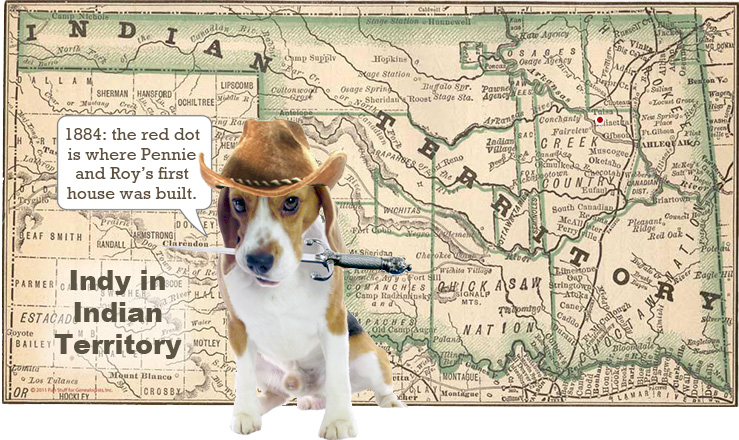I lived in Muskogee, Oklahoma for 3 years before Merle Haggard released his hit song, “I’m Proud to be an Okie from Muskogee.” Even though I was only 12 at the time, I realized Brother Haggard’s song contained more corn than the whole state of Iowa.
I laugh about being an Okie, but in truth, I am proud of the resourcefulness of my tribe. An Okie can build a rocket ship while he is flying it.
Walk into any Oklahoma restaurant, church, or nightclub and choose 9 men at random. You will have within that group the ability to:
- weld every kind of metal
- repair any motorized vehicle, electrical appliance, or mechanical device
- throw a rock and knock a bird out of the sky
- butcher a cow, pig, or deer
- tell a story that will make you laugh, and sing a song that will make your cry
- dig the footings, tie the rebar, pour a cement foundation, then
- frame the house, install the plumbing and wiring, hang the sheetrock and the cabinets, install the fixtures, roof it, brick it, and sell it.
And Okie girls are twice as resourceful as Okie boys.
Okies learn their skills from family and friends because formal education takes too long and teaches too little. If you want to be a doctor or a lawyer, go to college. But if you just want to make some money, go do it. Don’t stand there like a whiner with your finger in your nose. Don’t fret like a little girl who is worried that Santa Claus doesn’t know her new address. And don’t count on getting a lucky break like some kind of wimpy-ass frat boy. Okies who wait for breaks go broke.
An Okie’s lack of respect for college degrees occasionally has unintended consequences. I recently got an email from a friend in high school who said, “All these immunologists are saying one thing, but some of the guys we went to high school with are saying the opposite, so I don’t know who to believe…”
When Pennie and I bought our first home in the little town of Broken Arrow, three additional rooms had been added to the original structure to make it a total of 800 square feet. It was built in “Indian Territory” in 1884, just 108 years after the colonies informed King George that his services would no longer be required.
In 1744, when Thomas Jefferson was still in diapers, all of North America outside the 13 colonies was “Indian Territory.” So when a delegation from Virginia offered to provide a college education for a dozen Native American boys, Chief Canassatego replied,
“We know you highly esteem the kind of learning taught in these colleges. And the maintenance of our young men, while with you, would be very expensive to you. We’re convinced, therefore, that you mean to do us good by your proposal, and we thank you heartily. But you who are so wise must know that different nations have different conceptions of things. And you will not, therefore, take it amiss if our ideas of this kind of education happen not to be the same with yours.”
“We have had some experience of it. Several of our young people were formerly brought up in the colleges of the northern province. They were instructed in all your sciences. But when they came back to us, they were bad runners, ignorant of every means of living in the woods, unable to bear either cold or hunger, knew neither how to build a cabin, take a deer, or kill an enemy, spoke our language imperfectly, and therefore were neither fit for hunters, warriors, nor councilors. They were totally good for nothing.”
“We are, however, not the less obliged for your kind offer, though we decline accepting. To show our grateful sense of it, if the gentlemen of Virginia shall send us a dozen of their sons, we would take great care in their education, instruct them in all we know, and make men of them.”
Some people are street smart and some people are book smart.
The thing to remember is that one does not negate the other.
Roy H. Williams
 For Dan Bruder, the question is not whether business owners and entrepreneurs should strive to make a large profit – they should – but how they can subsequently use their earnings to enrich the lives of their employees and customers, and thereby build better communities. Dan calls his method the “Blendification System.” As he explains to roving reporter Rotbart, it is a proven playbook for embracing capitalism as it was meant to be. Get wealthy. Share the wealth. At MondayMorningRadio.com
For Dan Bruder, the question is not whether business owners and entrepreneurs should strive to make a large profit – they should – but how they can subsequently use their earnings to enrich the lives of their employees and customers, and thereby build better communities. Dan calls his method the “Blendification System.” As he explains to roving reporter Rotbart, it is a proven playbook for embracing capitalism as it was meant to be. Get wealthy. Share the wealth. At MondayMorningRadio.com
